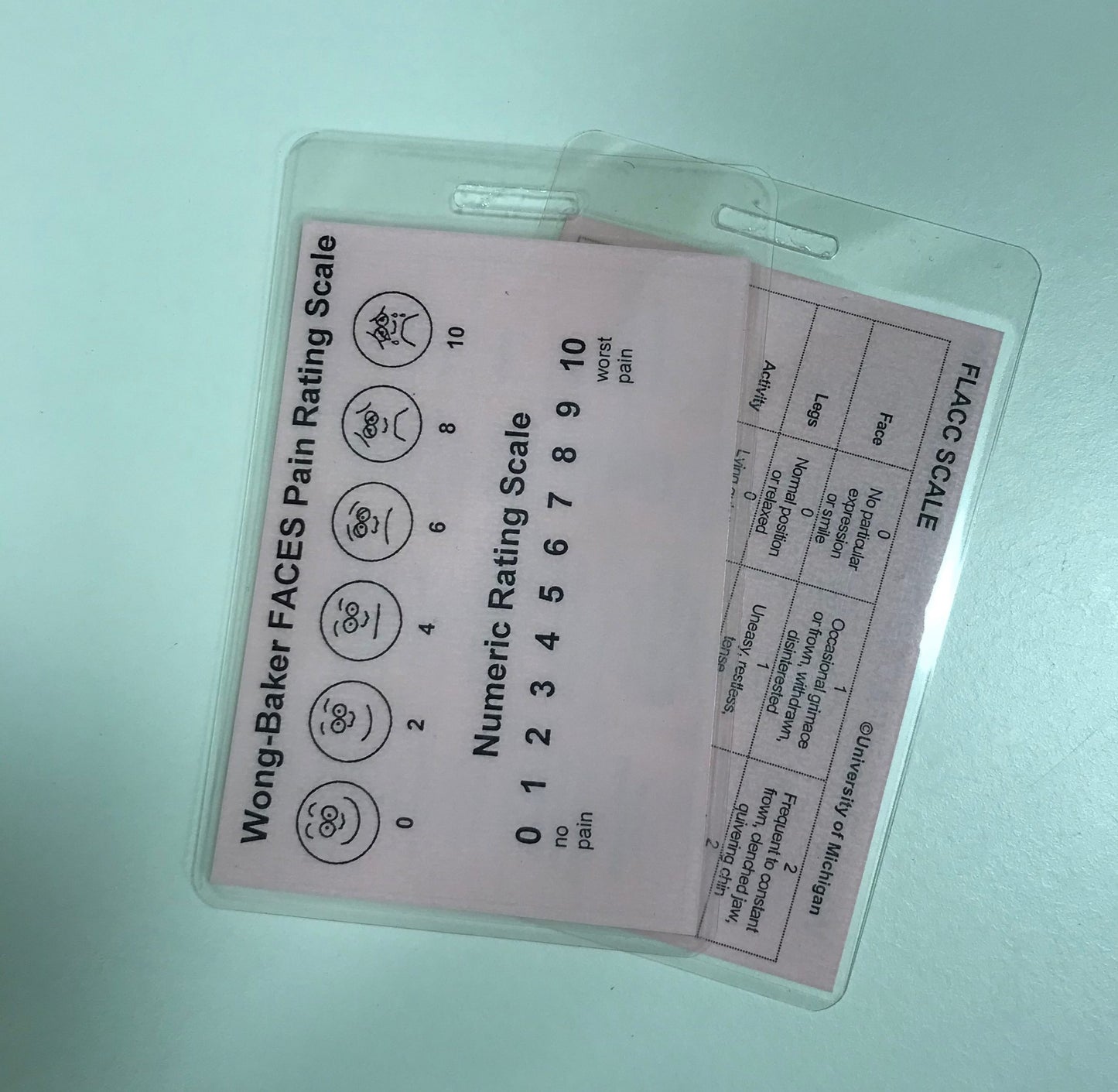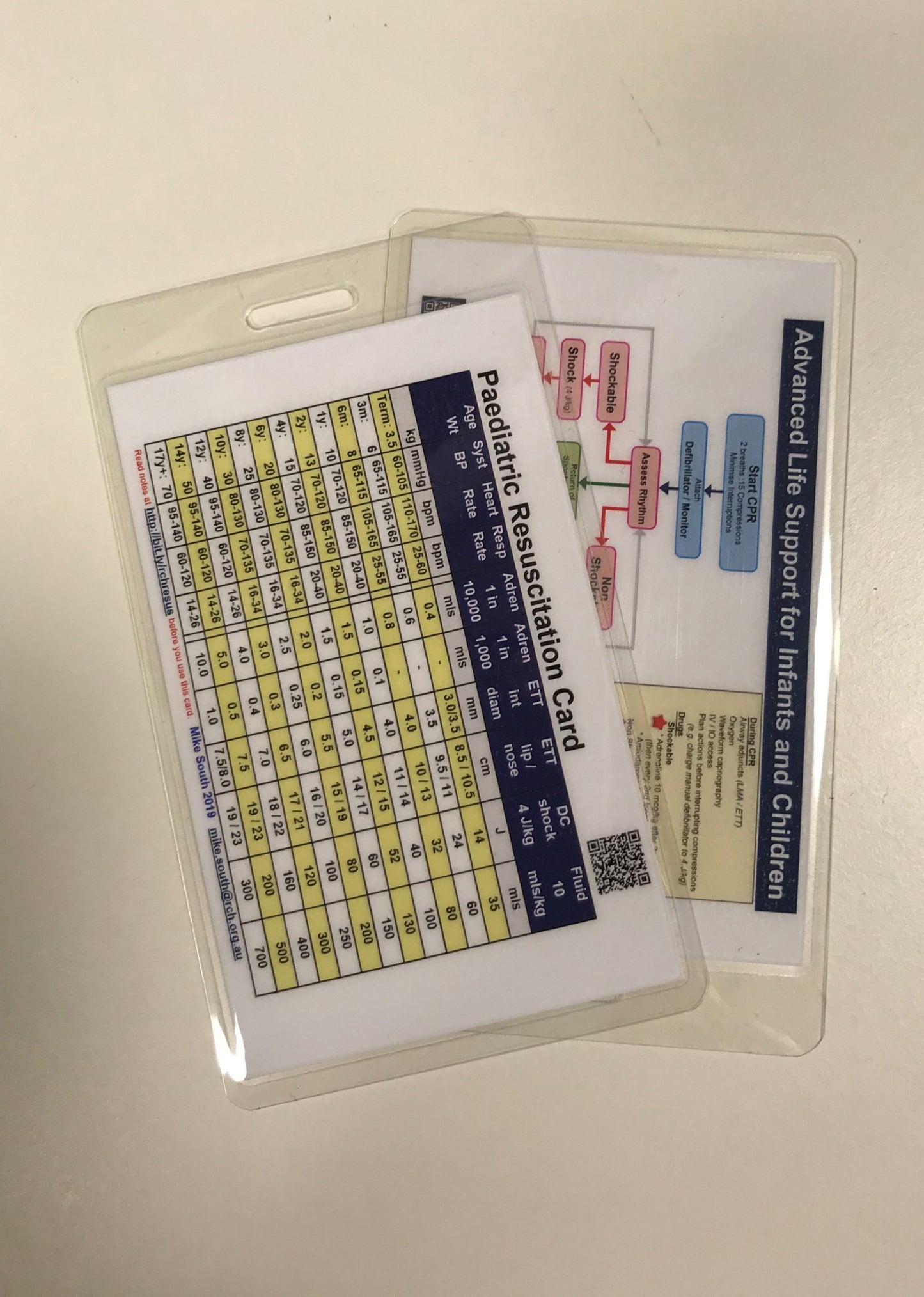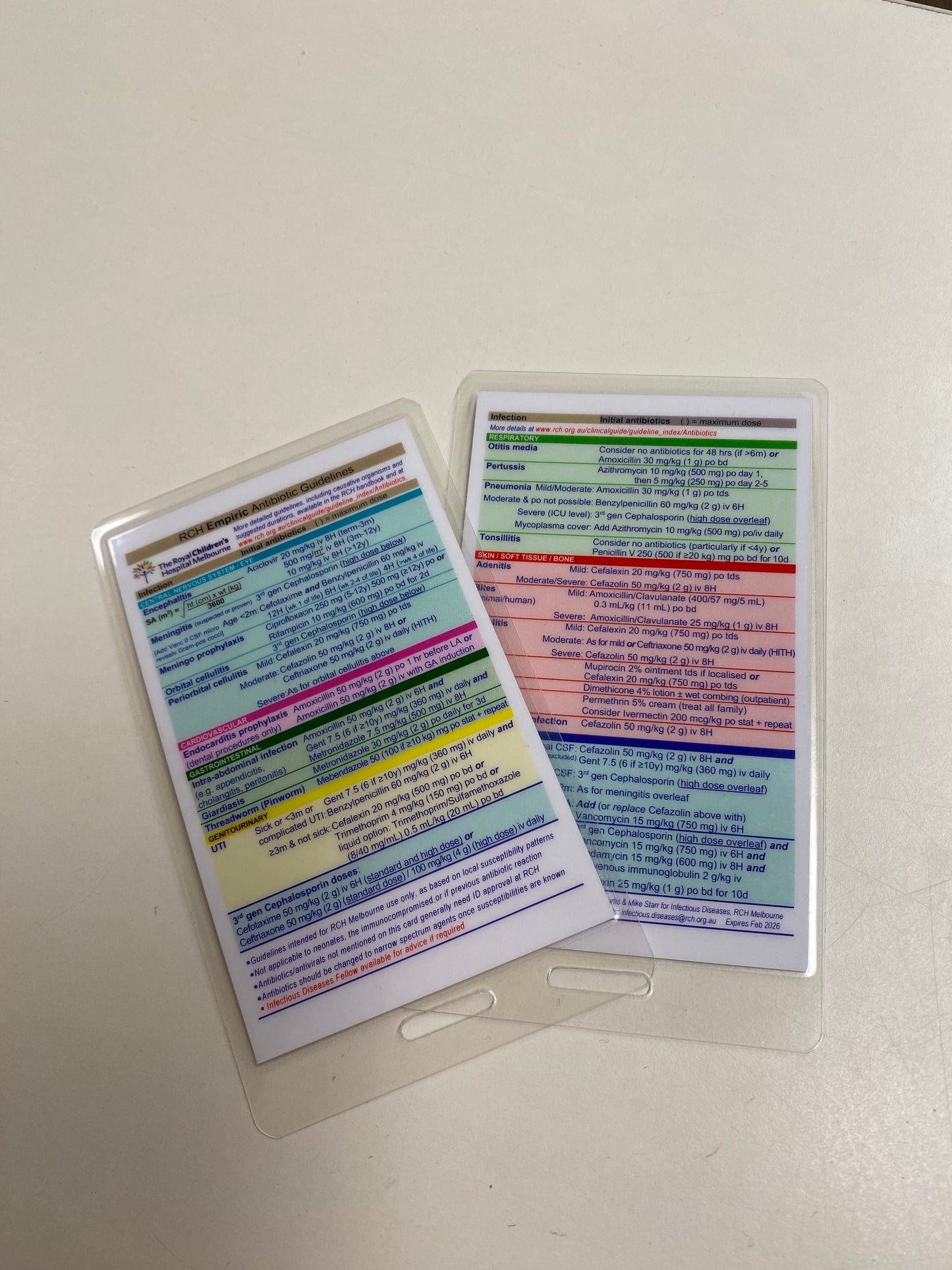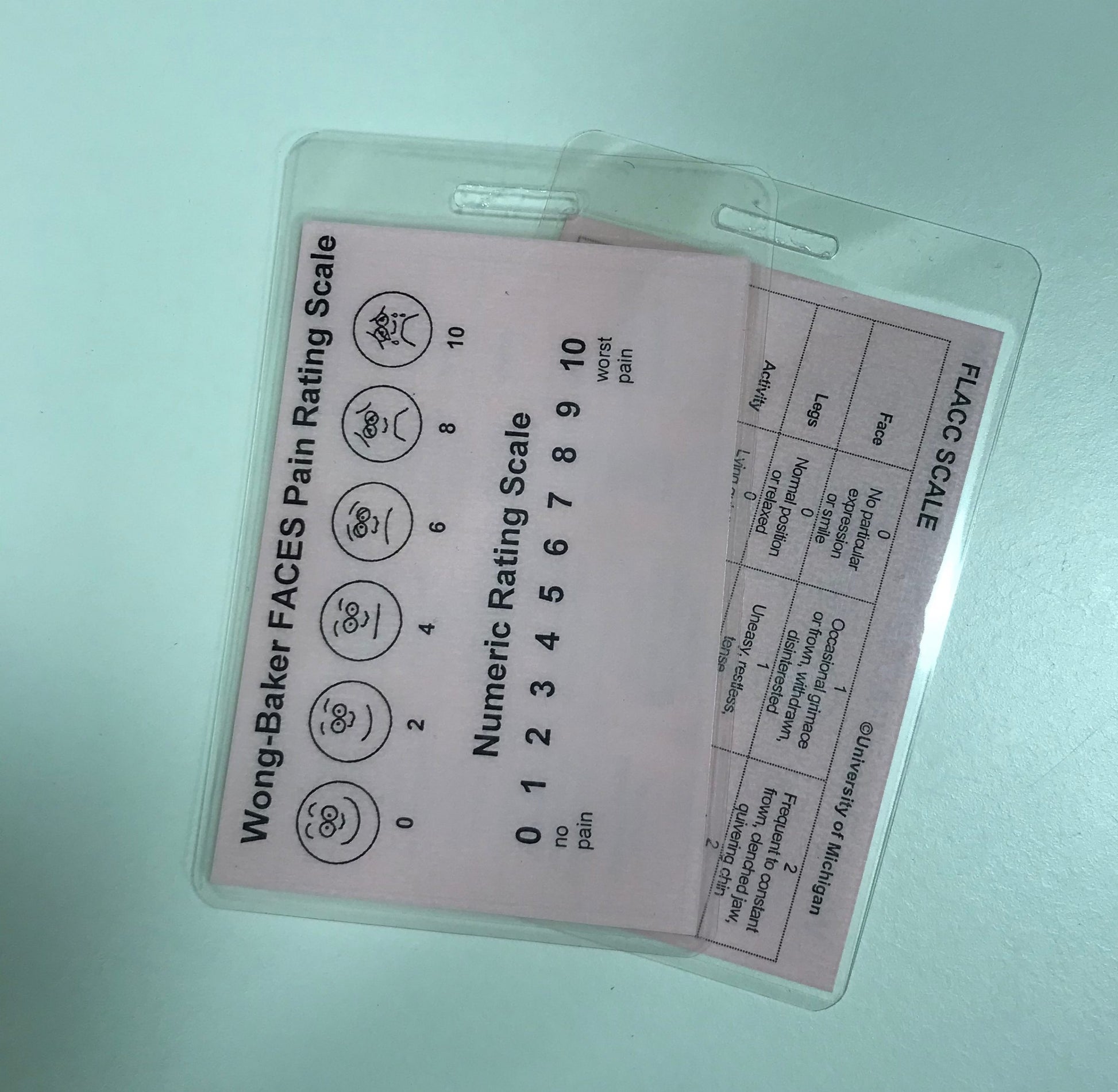shop.rch.org.au
Medical Lanyard Cards
Medical Lanyard Cards
Couldn't load pickup availability
Laminated, ID badge-sized, medical lanyard cards to use as a ready reference
Paediatric Resuscitation
- We apologise that these cards are currently out of stock but will be available again soon
Signs of shock, cyanosis, bradycaradia/ tachycardia, apnoea or increasing tachypnoea are warning signs and an indication for urgent resuscitation. The majority of arrests in children are due to hypoxia, hypotension and acidosis. The most common dysrhythmias are severe bradycardia, pulseless electrical activity or asystole. Ventricular arrhythmias (Ventricular fibrillation (VF) and pulseless ventricular tachycardia (VT)) are seen with pre-existing cardiac disease (cardiomyopathies, hereditary prolongation of QT interval, congenital heart disease), poisoning (eg. tricyclic antidepressants) and low voltage electrocution (less than 1000 volts), and may occur during resuscitation. SVT may cause shock in newborn infants.
Antibiotics Guidelines
Stay up to date with the latest 2025 Empiric Antibiotic Guidelines! These handy pocket cards provide quick access to evidence-based antimicrobial recommendations at the point of care, supporting initial choice and dosing for common infections.
Wong-Baker & FLACC Scale
The Wong-Baker Faces Pain Rating Scale is a pain scale that uses self-reporting by the patient to assess the experience of pain. It can be used in children aged between 3 and 18 years of age, depending upon their cognitive ability. The FLACC (Face, Legs, Activity, Cry and Consolability) is a pain assessment tool that uses the patient’s behaviour to assess pain experience. It can be used for children aged between 2 months and 18 years of age, and up to 18 years of age in children with cognitive impairment and/or developmental disability.
Share




